
by Daniel Amen | Oct 18, 2022 | Life Advice, Wisdom
Make Rules for Vulnerable Times
Everyone falls; failure only happens when you stop getting up. Many of my patients find it helpful to create simple rules for vulnerable times, such as:
1. Start your meal with healthy foods such as vegetables so there is less room for unhealthy ones.
2. Split entrees.
3. Don’t go to a game or concert hungry; it leaves you vulnerable to the temptation of bad foods, such as cotton candy and hot dogs. Eat ahead of time.
4. Swap dinner plates for salad plates so it forces you to have smaller portions.
5. If you want to “cheat” on your nutrition, call a friend first. This will distract you, delay the craving, and enlist some support.
6. Have a plan when you experience cravings or feel out of control: take a walk, drink a glass of water (you may be thirsty, but misperceive it as hunger), play Tetris for a few minutes (it actually decreases cravings) until the impulse goes away.101
If you are truly going to change, you must change what brings you pleasure. Find what you love about nutritious food. Learn to find what you love about exercise. One of my friends hates running but loves playing table tennis. Connect to who you are becoming; think like a healthy person. How would a healthy person order this meal? The simple act of identifying yourself as a “Brain Warrior,” someone who is a healthy role model for others, can be enough to change the way you see yourself and the way you behave.
Today’s practice: Which of these rules can you adopt for vulnerable times? Write it out and post it where you can see it.
101. Jessica Skorka-Brown et al., “Playing Tetris Decreases Drug and Other Cravings in Real World Settings,” Addictive Behaviors 51 (December 2015): 165–70, https://pubmed.ncbi.nlm.nih.gov/26275843/.
Excerpted from Change Your Brain Every Day: Simple Daily Practices to Strengthen Your Mind, Memory, Moods, Focus, Energy, Habits, and Relationships by Daniel G. Amen, MD. Copyright ©2023.
Used by permission of Tyndale House Publishers, a Division of Tyndale House Ministries. All rights reserved.
________________
Three Steps to Thrive in a Crisis
Develop a TLC mindset. How can you be happy while the world is falling apart? The people who are resilient versus those who are not have a TLC mindset. They see what is happening as temporary, local, and with some sense of control. People who crumble in hard times tend to see the situation as permanent (things will never change) and global (it’s everywhere), and they feel as though they have no control over the situation (they feel like a victim). Here’s how I used TLC to deal with the COVID-19 pandemic.
Temporary: The coronavirus pandemic will not last forever. Think about all the pandemics from the past—the Spanish influenza, bubonic plague, and cholera, for example. They all eventually resolved. This, too, will pass.
Local: Although COVID-19 was worldwide, it did not hit every street in every city in the world. While far too many died, the vast majority of those who contracted the virus survived. Even though my dad died not long after contracting the virus, my mom and others close to me survived it.
Control: What can I “control” during hard times and what can’t I control? During the pandemic, I practiced good hygiene, wore a mask where appropriate, and shored up my immune system with vitamins D, C, zinc, and mushroom extracts. I also took one of the available vaccines, because my experience with my patients was that those who were vaccinated fared better than those who were not.
For managing the control aspect of TLC, I often say the Serenity Prayer. It is the essence of mental health: God, grant me the serenity to accept the things I cannot change, the courage to change the things I can, and wisdom to know the difference. This is the happy person’s way of life. Practicing TLC will strengthen your resilience to get through any significant issue in your life.
Today’s practice: Say the serenity prayer three times today.
Excerpted from Change Your Brain Every Day: Simple Daily Practices to Strengthen Your Mind, Memory, Moods, Focus, Energy, Habits, and Relationships by Daniel G. Amen, MD. Copyright ©2023.
Used by permission of Tyndale House Publishers, a Division of Tyndale House Ministries. All rights reserved.
________________
Tiny Habits for Trauma and Grief
Pick habits that help you feel better fast and last. Each of these habits takes just a few minutes. They are anchored to something you do, think, or feel so that they are more likely to become automatic.
1. Whenever I feel upset, I will cross my arms and stroke down from my shoulders to my lower forearms (this stimulates both sides of my brain and helps to have a calming effect on my mind) for one minute.
2. When I feel a wave of a traumatic memory or grief coming on, I will observe myself, write down any negative thoughts that come to my mind, and challenge them.
3. When painful memories from the past get stuck in my brain, I will write them out from an adult perspective, which can stop the thoughts from circling in my head.
4. When I feel anxious, I will take five diaphragmatic breaths to calm myself.
5. When memories of a traumatic event surface, I will ask myself what I am thinking or feeling. Then in my mind, I will go back to the very first time in my life that I can remember thinking those thoughts or feeling those feelings to see if my past is infecting the present. If it is, I will say to myself, “That was then, and this is now.”
6. When a lost loved one’s birthday (or other anniversary) arrives, I will spend time recalling happy memories and be grateful for the time we had together.
7. When I feel upset or lonely, I will call a friend and ask for their support.
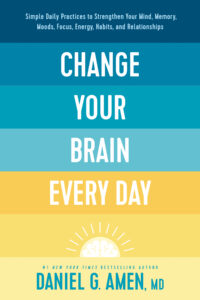 Today’s practice: Pick one or more tiny habits to place in your life when facing grief or trauma.
Today’s practice: Pick one or more tiny habits to place in your life when facing grief or trauma.
Excerpted from Change Your Brain Every Day: Simple Daily Practices to Strengthen Your Mind, Memory, Moods, Focus, Energy, Habits, and Relationships by Daniel G. Amen, MD. Copyright ©2023.
Used by permission of Tyndale House Publishers, a Division of Tyndale House Ministries. All rights reserved.
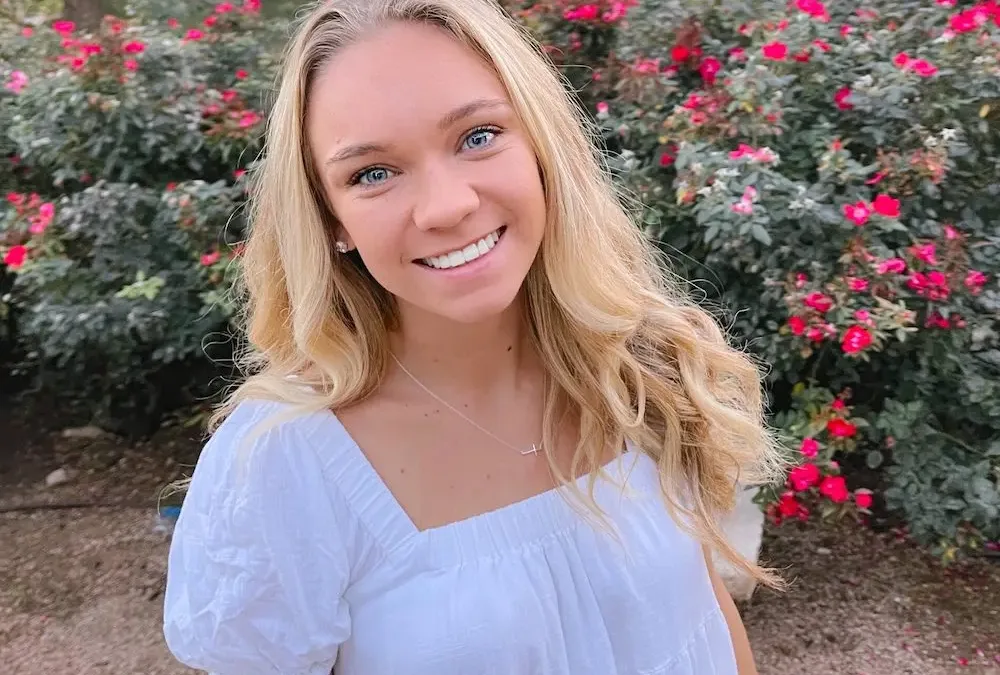
by Kassidy Brougham | Oct 13, 2022 | Homepage, Life Advice, Sisterhood
There is more pressure than ever to have the “perfect resume” that we think we need. We take perfect instagram photos, we have aesthetic filters, we post highlights of our life, and we criticize ourselves over all the small details. While having an aesthetic instagram is not a bad thing, always having a filtered and perfect life on the outside can be. Do you have a place where you take that filter off and you are real, raw, and honest? Do you run to Jesus real, raw, and honest?
When I was in middle school I went with my church to evangelize on the streets in California. One of the first questions we asked the people we would meet was, “Do you know that Jesus loves you?” Some would say yes but most would say, “Well if Jesus knows what I have done he doesn’t love me like you think,” or “Not after what I have done.” This has stuck with me after all these years because I remember my middle school heart was broken knowing that people did not think that Jesus loved them. Sometimes we think we need to have that perfect resume, filters on, and the perfect aesthetic to be loved. We think “if only they knew what I have done they would not love me.” What if I told you that is the farthest thing from the truth? What if the very thing you are scared of uncovering is what is going to make others love you more deeply? The scar that you are trying to cover up could be the very thing someone needs to see in order for them to have hope and healing for their open wound.
I am sure you have heard to Sunday school song about Zacchaeus,
“Zacchaeus was a wee little man,
And a wee little man was he.
He climbed up in a sycamore tree
For the Lord he wanted to see.
And as the Savior passed that way
He looked up in the tree and he said,
Zacchaeus you come down,
For I’m going to your house today!
For I’m going to your house today!”
Zacchaeus was not only a “wee little man,” but he was seen as one of the most disliked people of this time. He was a tax collector and tax collectors were not liked. Not only did he collect everyone’s taxes but he became rich by collecting money unfairly and overtaxing the people. Why would Jesus want to go to his house of all the people in the crowd? A man who was unfair and selfish yet Jesus chose to go to his house? Jesus does not look for the perfect resume to show love. Jesus sits with everyone. Jesus knew if he could get Zacchaeus to drop his walls he could love Zacchaeus deeper. Jesus is waiting for you to drop your walls too. He loves you and wants to see the real you. He knows your sins, the wrongs, and still loves you. He wants to be let into your house too.
The same can be said with our relationship with others too. When I was growing up I was always desiring more from my friendships. I was never satisfied and I felt like I would never find “my people.” If you desire deeper relationships there has to be deeper conversations. I realized that the issue is not always the people I had in my life (which sometimes it is) but the depth of the conversations. If you have surface level conversations you will have surface level friendships. It is hard to drop your walls but it is so worth it when you drop them to the right people. If you drop your walls it gives others the opportunity to drop their walls too. The more transparency you can be in relationships, the more you will connect with others. When there is realness and honesty with people in your life everyone can learn how to serve each other better. We should look at relationships with the attitude of “how can I serve and help you right now?” This is something that the couple months of marriage I have learned is so important. Being real and honest with each other and being able to serve the people in our lives is such a gift.
It is awesome to see people be real and raw on social media now too. The unfiltered photos, the vulnerability, I think it provides us all with a sense of relief and hope. I think it is also something to be careful about though. I remember when I was first vulnerable on instagram I had made this long post about having an eating disorder in hope to encourage someone else. I posted it and immediately had friends texting me. I had not even told some of my closest friends what I was struggling with but I posted it for thousands of strangers to read? It is so important, especially in a place of hard times and hurt, that we run to Jesus first. Next we run to our friends and family for prayers and guidance. Then when the wound has healed and you have a testimony of God’s hope and healing that is when we share on social media if you feel called to.
We were called to have deep connections. In Proverbs 27 verse 17 it talks about how iron sharpens iron and as friends we are to also sharpen each other. A friend speaks truth to you in order to help you live out who God called you to be. Do not be afraid to be vulnerable with a friend. A true God loving friend will strive to do anything they can to help you overcome and reach your full potential.
If you are thinking I do not even have people to be honest with, seek them. Seeking friendships through church, your community, social media, and even work can be intimidating but it is worth it. Sometimes you may have to be the one that starts the conversation or asks to hangout and that is okay. Ask first. Seek intentionally. Be real. Serve eachother. Be the friend that Jesus calls us to be.
Taking off the filter can be hard but our beauty and worth come from Jesus not some perfect resume we try to portray.
Kassidy cheered in college at Navarro College and is now a personal trainer while using fitness to lead others to Christ. She strives to encourage women to be confident in who God created them to be. She lives in Texas currently and loves cooking, working out, flowers, and boba!
Follow Kassidy on Instagram @kassidy.brougham
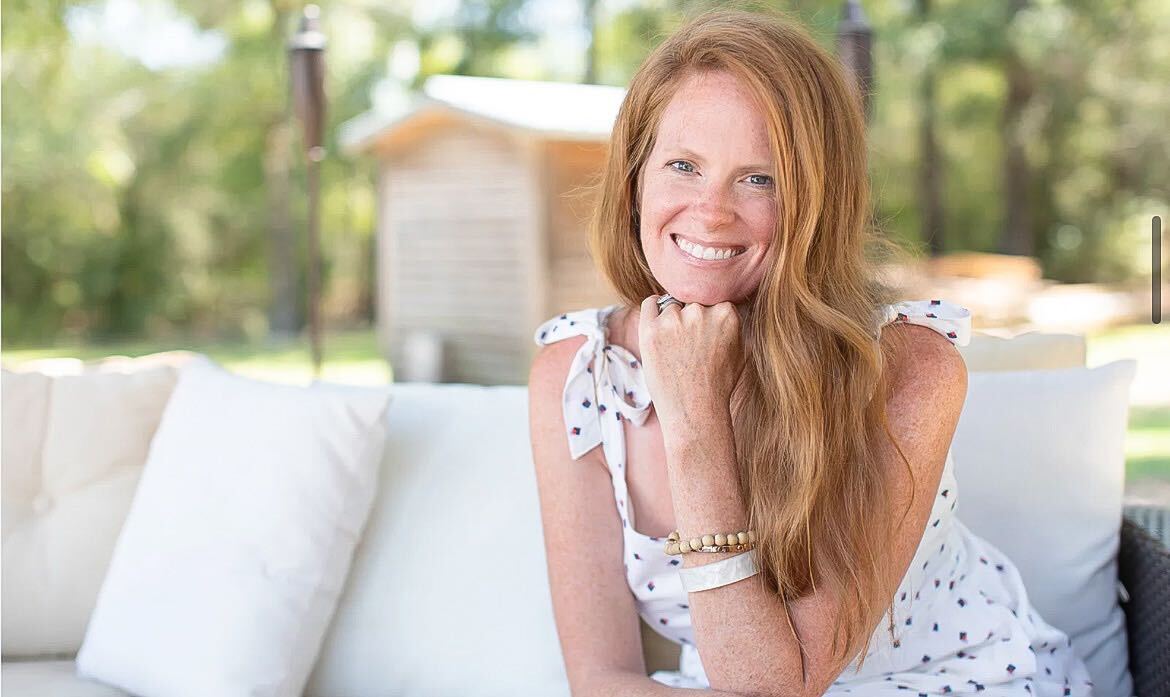
by Rachel Norman | Oct 11, 2022 | Life Advice, Sisterhood
When we are in the busy years of motherhood, life can feel so overwhelming. We barely make it to the end of the day without bursting into tears, and it feels like reaching out to others takes too much energy. And maybe it does. But it can also give us energy, relief, and encouragement to keep going.
Social support systems have benefits that are so far-reaching they actually prolong life. Such “villages” used to be common. Now, our villages are spread out across the country and maybe even the world, and we chat with them on our phones. And that’s okay too. But not if that takes the place of real-life relationships.
I follow a popular author who seems to have the most amazing friends and family around her. She frequently posts about those in her life who always seem to show up when she needs them. They make meals. They watch her kids. They buy her thoughtful gifts and are there when she needs a shoulder to cry on. They listen and give advice at just the right times.
Once I saw a comment on one of her threads that gave me a light-bulb moment. The person said something like, “I’m so glad you have amazing friends and family, but the rest of us don’t, so this all feels a bit braggy.”
There is nothing more discouraging than feeling alone—alone in your struggle, alone in your situation, alone in your home. When you have babies, toddlers, and preschoolers, the days are so long. And while the little ones can give amazing hugs and cuddles, you may often feel starved for grown-up conversation.
Caring for our little ones takes up most of our time and energy. It’s overwhelming. It’s exhausting. But it’s in these years that we’d most benefit from help, support, and friendship. And because most of us live life online instead of in the local community, we don’t even know how to get it.
As I’ve wrestled with that dilemma, I’ve discovered a few approaches that have led to rich friendships.
Think outside the age box
One friend who helped me through cancer treatment, Sheryl, is about ten years older than me. She went through breast cancer when she was my age. And another two times since then. When I felt scared or panicked, I could reach out to her. Sheryl would listen—sometimes come over—and point me back to the Lord. She was someone I could rely on and reach out to when I felt bad. Her support was life-giving.
Friends don’t have to be your same age or in the same life stage. In fact, if you’re a mom of young kids, it may be hard to find a mom your age for support because you are both likely to be strung out and exhausted.
This is a great time to make friendships with older women who don’t have little ones underfoot. They have more time and remember the challenges of the stage you are in. These women can offer their perspective, wisdom, and practical help. Seek them out in your church. Be vulnerable about your struggles.
Think local first
When you are going through something and need to talk with someone, start locally. Instead of immediately reaching out to a friend across the country, reach out to someone near you, someone you may run into this week.
Forget about how your house looks, and invite that person over. Schedule the visit for when your little ones are down for a nap so you can concentrate on your time together. Or invite this person over after the kids are in bed. If you don’t purposefully cultivate relationships with people near you, you won’t have any.
When our schedule permits, we’ll invite a family over for dinner and a swim. We choose an easy meal and let the kids play outside so there’s no mess to clean up later. Thinking easy instead of elaborate means it’ll actually happen.
Be real
People who are real feel safe to others. Even if you don’t agree with everything they do or say, you can relax when you’re with them. Be this type of person. Forget about looking good, sounding good, or performing. That is vanity and doesn’t fool anyone.
If you’re sad, be sad. If you’re angry, be angry. If you’re discouraged, ask for encouragement. If you want to cry, cry. If you are about to drown, ask someone to throw you a life preserver.
Pray you’ll run into someone who can encourage you. Believe that God hears your prayers and answers them. If you don’t think prayer works, it’s because you haven’t done it enough. Scripture says, “You do not have, because you do not ask” (James 4:2, esv). So ask.
Find a church or a mom’s group. If you behave authentically, you’ll attract others who do the same. Go to your pastor or small group leader and say, “I can’t take it anymore. Do you know anyone who might be able to help me this week?” Be specific. You need help; this isn’t the time to hold back. When you find someone with the desire to help, talk to them for as long as you can. Tell the kids to be quiet and wait; they will be okay. They will learn patience.
Be a friend to have a friend
If all else fails and you feel disconnected, love others first. Find out who needs help in your area, and give it to them. Look for a mother who is worn out, and make or bring her some food.
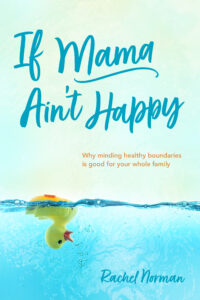
If you know a family in your church or neighborhood that is struggling financially and you are not, pay some of their bills anonymously. Get them gift cards to the grocery store. If you don’t currently have extra funds, you can at least drop off an encouraging note. If you see something you know would lift someone’s spirits, bring it to them. Give time, attention, and love to others. Even if they don’t pay you back immediately—or ever—you will feel encouraged.
You will feel connected. You will feel alive. You will truly understand on a deeper level that it is better to give than to receive (see Acts 20:35), and in giving, you will receive some balm for your weary soul.
Adapted from If Mama Ain’t Happy: Why Minding Your Own Boundaries Is Good for the Whole Family by Rachel Norman. Copyright © 2022. Used by permission of Tyndale House Publishers, a Division of Tyndale House Ministries. All rights reserved.
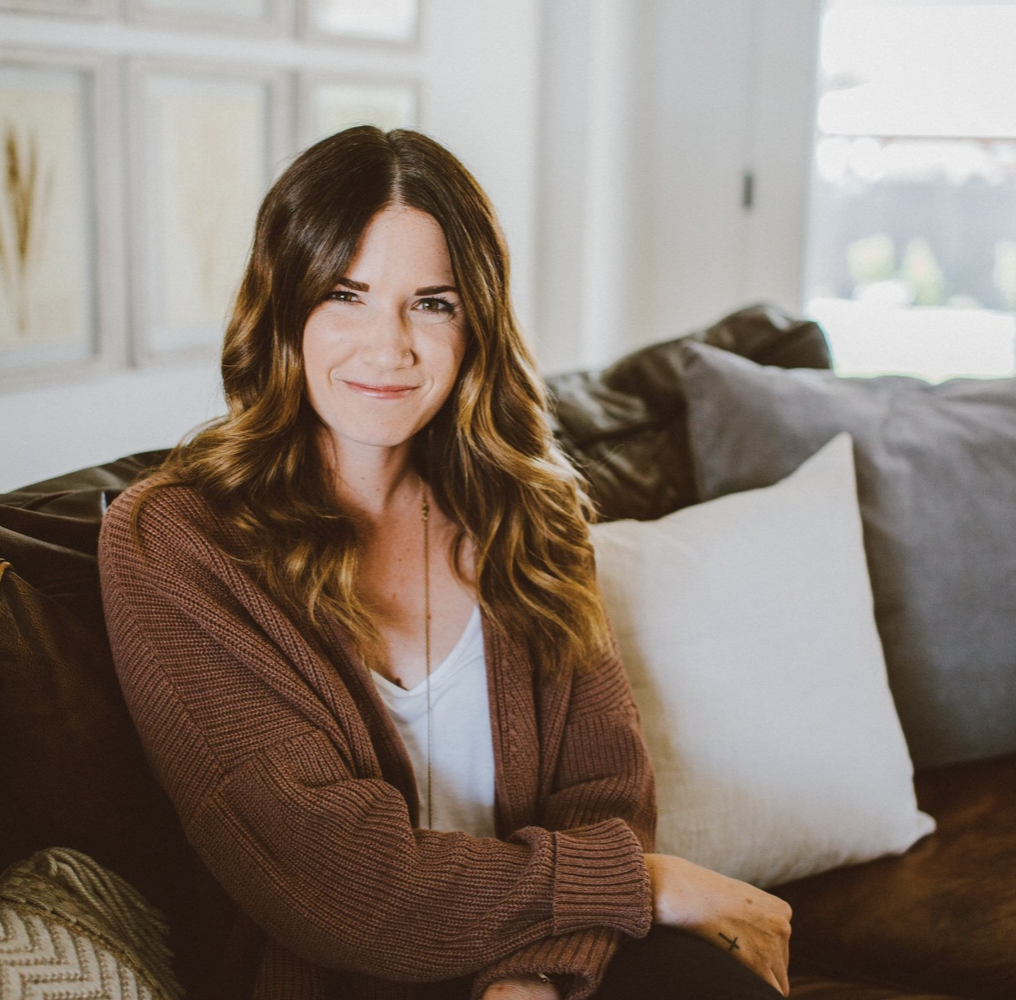
by Kayla Stocklein | Oct 7, 2022 | Life Advice
When my husband Andrew tragically died by suicide in 2018, I had to ask myself: If I’m no longer Andrew’s wife, then who am I now? Similar questions are some of the most painful ones we may encounter in our journey of rebuilding, because an identity crisis is no small issue. When a role, career, or relationship that gave meaning and purpose to us ends, we may struggle to find the strength, courage, or passion to begin again.
The daunting task of reclaiming identity is really a journey inward. It’s digging deep to discover who we were each uniquely created to be. For me, the journey inward has felt like resurrection; for a while I forgot who I was, and it took a death to wake me up to life. As the parts of me that lay dormant for years reawakened, I started making a list of the moments when I felt most alive. On my little list I wrote: “running, paddle boarding, spending time with friends, reading, writing, surfing, cooking, traveling alone, traveling with my kids, being spontaneous, lighthearted TV shows, going to bed early, saying yes more than saying no, house projects, power tools, road trips . . .”
As you awaken to who you are now and step toward who you’d like to become, perhaps it’s time to start making your own list. Write down all the things that bring you joy. When do you feel most alive? What hobbies have you left behind that you’d like to pick up again? What new passions do you want to pursue?
Reclaiming your identity isn’t some New Age or self-help voyage toward “becoming the best version of yourself.” Instead it’s simply about dying to the false self—the version of your- self that you may have created for survival but never really felt like home. Have you lost track of who God made you to be? I believe he is beckoning us to let go of our falsified selves, our deep longing to be approved of by others, and our tendencies to define ourselves by successes, achievements, or accolades. It’s in the safety of his love that we are finally free. No more striving. No more climbing the ladder of success only to discover it’s lonely and empty at the top. No more stretching ourselves thin to prove we deserve joy. No more exhausting ourselves through extra hours at the office or deriving our value from likes on Instagram. To be fully known and loved—to be fully free to step into who we were created to be—is to return home to the love that has encircled us all along. This love, God’s love, has been there and will be there no matter how far away from it we stray.
I find great comfort in a parable Jesus told: that of the prodigal son. The prodigal son is all of us. We get a little lost sometimes, a little tangled and twisted up in the pressures of daily life. We lose sight of where we are going and wind up far from home. In this story, a son cashed out early on his inheritance and left the safety of his father’s home to see what the world had to offer. After squandering his wealth and coming up empty on his search to be loved by the world, he returned home empty- handed. And as the story goes, “while he was still a long way off, his father saw him and was filled with compassion for him; he ran to his son, threw his arms around him and kissed him” (Luke 15:20). The father could have chosen anger, resentment, or rejection, but instead he chose love. He not only chose love, but he also chose to show it by throwing a big party to celebrate his son’s return.
Maybe you feel like your circumstances are your fault. Maybe you’re trapped in a pit of “could have, would have, should have.” Maybe you’d be the first to admit you arrived in this season of rebuilding through a series of poor life choices. Maybe you feel not only lost in your identity but also un- deserving of love. Friend, there is a Father waiting with open arms to welcome you home. You are beloved. You are deserving of a beautiful life. Healing and hope are waiting for you. Your past doesn’t have to define your future. You get to choose who you want to become.
I am learning that it may take a lifetime to answer the question of who I am. Perhaps it’s because the answer is ever-changing. There are many versions of myself that have shaped me into the person I am today, and the person I am today is actively shaping the version of myself I’ve yet to meet. But the wild joy of it all is that I get to be right here. I get to show up today just as I am. I get to love my three sons just as they are. I get to step in and out of a hundred different versions of myself. I get to try, try, and try again, knowing I haven’t yet arrived and am never fully finished. The process is an endless return to love. It’s an endless return to the Father’s open arms. It’s living daily with unclenched hands, knowing that life is a fleeting, precious gift.

by Blake Guichet | Oct 4, 2022 | Life Advice
In my early years I kind of despised the Proverbs 31 woman, whom I pictured sitting at home knitting and serving her husband’s every wish and whim. I wanted nothing to do with that or the image of the docile Christian woman as portrayed by the churches I grew up in.
I absolutely did want to be of noble character, and when I finally decided to settle down, heck yeah, I wanted my husband to consider me worth more than gemstones. But in the meantime, I didn’t have time to select wool and flax and make linen garments (see verse 13). I just couldn’t believe God created women to shuffle around doing their husband’s bidding, never speaking up, never having a thought or pastime of their own.
I was taught that the Proverbs 31 woman was the poster child, the perfect example of biblical servitude and submission. The thing is, there’s some truth there. Yes, women are definitely called to be service-hearted and submissive, but too many teachers who emphasize these characteristics water the Proverbs 31 woman down until she is nothing more than an errand runner, a housekeeper, and a seamstress. But she is so much more. Not only that, but the apostle Paul actually calls men to an even higher level of service and submission in Ephesians 5:25-26.
In my opinion I was the furthest thing from the Proverbs 31 woman—or at least the version I was introduced to at church. As a result I spent years praying God would change me. I felt God’s will would be to make me quieter and meeker, to make my words land more gently, and to soften the pitch of my voice so it didn’t always rise above everyone else’s. This was the version of a godly woman I heard about. So much of my life was spent questioning how God created me rather than walking in it. I’m not quiet or docile, and I ask lots of questions, especially of those in authority. I’m a natural leader, go-getter, and boat rocker.
In fact, my youth leaders and camp counselors lost me at the very start: “Who can find a virtuous wife? For her worth is far above rubies” (Proverbs 31:10, NKJV). All through adolescence and high school, I was completely and unequivocally uninterested in being someone’s wife. In fact, my adversity to marriage was so well known that my younger sister bet my father that I wouldn’t get married until I was thirty. After all, my sister knew I had dreams and aspirations: I was going to law school and would become the greatest female criminal prosecutor the world had ever seen.
And then two months before my twenty-third birthday, my sister had to hand over fifty dollars to my dad when I married the love of my whole life. Obviously, something had changed, and as dreamy and wonderful as my husband was (and is), it was more than just meeting him that changed the trajectory of my life. I had figured out that the way Christian womanhood is sometimes unpacked from pulpits is crap.
When I took the time to study Proverbs 31 for myself, I realized that her account has often been twisted and watered down by Christian leaders, so far from the woman of action and leadership she actually was. Likewise, I stopped feeling like a rebel for being the woman of Christ I was and finally recognized that it was not only okay to be a strong woman who loved Jesus, I honored Him when I walked in my strengths and the way He made me. I shifted from hating the Proverbs 31 woman because I knew I could never be her (nor did I want to) to realizing that she was the original wild woman—someone I could aspire to follow.
I know I am not the only woman who has felt trapped because she was taught a caricature of the Proverbs 31 woman. As a result, we get the idea that we somehow manage to not be enough but also be too much at the same time. We are never able to keep up with the ever-growing list of demands of what we should do and who we should be, while simultaneously feeling judged for being too loud, too opinionated, too emotional.
Personally, I like to think that the Proverbs 31 woman lived with the same tension but was never ruled by it. I think she was fully aware of what needed to be done and what was required of her, but she never let her to-do list dictate her worth. I believe she was loud and opinionated and sometimes emotional, but instead of letting that make her feel like too much, she recognized that these traits were what made her human.
In short, I’ve come to love rather than loathe the Proverbs 31 woman. I no longer see her as coming from a mold I never wanted to fit but as a guide I’m honored to follow. And I never want to see her weaponized against women to further the not-enough-but-too-much narrative. After carefully studying this passage, I’m taking back the Proverbs 31 woman so I see her in the way the Father intended her to be seen—as a strong leader who knew exactly who she was and whose she was.
When I began digging, I was fascinated to read verse 1 and discover that the words of Proverbs 31:10-31 were attributed to a woman who was advising her son, King Lemuel, about the kind of wife he should look for. For so long we’ve been taught that these verses were written from a man’s perspective to tell women what they should be, but in fact it is primarily a list of what men should look for in the women they will marry. Today we also look at it as a punch list for us girls, but that was not how it was originally read. Doesn’t knowing the passage was intended for a man change our entire perspective?
Interestingly, do you know what the Hebrew translation for “a virtuous wife” (verse 10, NKJV) in those first few words of this section is? Eshet khayil. Eshet can be translated as “woman” or “wife,” but Scripture also applies the term khayil to men. For instance, that word shows up in the term “mighty men of valor” found in 2 Kings 24:14. Interestingly, Ruth, the Moabite widow, was also called khayil by the Israelites and by Boaz, her eventual husband, because of the courage and loyalty she showed when she followed her mother-in-law back to Bethlehem. (The complete story is told in the book of Ruth.)
So in Proverbs 31, Lemuel’s mom tells him to search out a woman who is a champion. A woman of hard-won victory and reward. A woman of strength. This makes me simultaneously scrunch my eyes in frustration and puff my chest in pride. Can you imagine if the people who taught us about Proverbs 31 had told us she was actually a tenacious and spirited woman? One who wouldn’t take no for an answer? A woman of valor, not timidity. Mighty not feeble. It would have changed the game.
And that’s what we learn from just the first three words. What about her relationship with her husband? Yep, that’s solid too. So solid he completely trusts her. He is so confident in her abilities and trustworthiness that he knows his deepest, darkest secrets are safe with her. She makes his life so much better in every way that she is considered a gain, not a burden. Even before I knew I wanted to be a wife, I knew this was the kind of partner I wanted to be—able to stand on my own two feet, confident and secure in who God made me so I wouldn’t constantly lean on my boo to tell me who I am. But so often Christianity redefines those traits as being “too much.”
Knowing who you are in Christ is not prideful. Walking in the gifts He’s given you is not arrogance. And man have we gotten this all upside down and twisted. We’ve been taught so much about humility we have no idea what godly confidence looks like. That’s not to say there wasn’t and still isn’t so much room for growth, sanctification, and sanding off the rough edges. I always want to look, sound, and live more like Jesus.
Taken from Confessions of a Crappy Christian. Copyright © 2022 by Blake Guichet. Published by Tyndale House Publishers, Carol Stream, IL Illinois. Used by Permission.
Blake Guichet is a writer and founder of the Crappy Christian Co., which aims to teach women how to use their God-given gifts for the Kingdom. She is the host of the popular podcast Confessions of a Crappy Christian—a weekly show that specializes in conversations with guests about their passions, struggles, and all the things they aren’t sure they can talk about. Blake is a proud Enneagram 8, American history buff, and playlist enthusiast, and her primary goal in all aspects of her ministry is to tell the truth while always pointing people to Jesus.

by Nona Jones | Sep 29, 2022 | Life Advice, Testimonies, Wisdom
I leaped out of bed when the alarm signaled it was time to wake up and hit the pavement. Ten minutes later, I was outside pressing “start running” on my fitness app and putting in my earbuds to listen to a worship music playlist. I was excited to run because the cool, crisp mornings between winter and spring are my favorite time of year. Although the April sky was still dark, threads of orange and purple streaked across it as the sun rose. My heart was light and joyful despite the unsettling times we had all been recently thrust into as the pandemic brought the world to a screeching halt.
Around mile four I began a conversation with God. I thanked him for my life, family, work, ministry, friendships, and the gift of healthy lungs that allow me to run. I prayed for wisdom to carry me and my team through an unknown future—one that required helping churches around the world figure out how to operate without gathering in a building. As the head of global faith partnerships at Facebook, I had received more calls, texts, emails, and direct messages from pastors and church leaders during the first weeks of COVID-19 than I had in the three years prior.
As I reached mile six, a favorite song came on, and I did a run-dance on the sidewalk as drivers-by looked at me in confusion. I punched the air and clapped with the beat while singing, “Trust in the Lord with all your heart! Trust in the Lord with all your mind! Trust in the Lord with all your strength! Lean not on your own understanding!” The upbeat tempo always got me pumped, but I had no idea that an hour later my trust in the Lord would be put to the test.
I made it home just in time to give my seven- and ten-year-old sons sweaty hugs and my husband a sweaty kiss before they left for the day. Then I started my post-run routine of showering, stretching, making a pot of tea, and having some quiet time with the Lord. I was looking forward to my Bible study time because the cancelation of many of my speaking engagements allowed me to study for the fun of it without the pressure of preparing to give a message.
The Holy Spirit had led me to take an interest in the life of Jonathan, King Saul’s son. A lot was written about his father, and even more was written about his best friend, David, but I had never looked closely at Jonathan. I started reading in 1 Samuel 14, which tells the story of how Jonathan waged an attack on a Philistine outpost with only his young armor-bearer by his side. As Jonathan made his way to Mikmash to fight two dozen Philistines by himself, his father, the king, rested comfortably under a pomegranate tree in Gibeah with six hundred soldiers. The juxtaposition of the two scenes was striking.
When Jonathan and his young armor-bearer reached the outpost, they saw that the Philistines were positioned on a cliff. This put Jonathan and his armor-bearer at a strategic disadvantage because it robbed them of the element of surprise. The climb to the Philistines’ position would also use precious energy they needed for the battle. Nevertheless, Jonathan turned to his armor-bearer and said, “Come, let’s go over to the outpost of those uncircumcised men. Perhaps the Lord will act in our behalf. Nothing can hinder the Lord from saving, whether by many or by few” (1 Samuel 14:6).
I repeated that last line to myself: “Nothing can hinder the Lord from saving, whether by many or by few.” Something about it resonated. When the Lord is for us, we can be outnumbered but are never unprotected.
I read a couple more chapters and then decided it was time to start my day. I quickly checked my Facebook page to respond to comments and messages and then did the same on Instagram. Although I normally go straight to my Instagram notifications, that day I caught a glimpse of my newsfeed first. And that’s when the downward emotional spiral started.
Friend 1: Hey, friends! I’m so excited to announce that I’m joining the speaker lineup for Susie Sacred’s Full Blossom Conference. Visit the link in my bio to register, and meet me online next month with an incredible roster of speakers!
Friend 2: I’m beyond ecstatic to share that I’ll be speaking at the Full Blossom Conference next month with Susie Sacred and an amazing roster of the best speakers across every sector. Will you be there? Comment below to let me know!
Friend 3: Next month is going to be epic! Join me and other amazing speakers at the Full Blossom Conference with Susie Sacred online next month. I have a message for you. Tag a friend and register at fullblossom.com!
After scrolling for what felt like an eternity, I counted no fewer than eight friends posting the exciting news that they were joining an amazing roster of speakers for a major women’s conference that was going virtual because of the pandemic. Since I don’t follow many people on social media, it seemed like the only thing in my newsfeed was an avalanche of exciting announcements about speaking at the Full Blossom Conference.
“Why wasn’t I invited to speak?” I asked aloud. “It’s like Susie asked everyone we mutually know except me.”
With each new post, I felt what can only be described as the stab of an emotional ice pick to the heart. My mind was clouded with hurt, so I stopped scrolling, closed Instagram, and looked out my living room window into a beautiful day. The skies were blue and filled with fluffy white clouds. Birds bounded from limb to limb on the tree just outside my window. But the beauty outside couldn’t overcome the ugliness churning inside me.
I was scheduled to join a video conference, but I was so distracted by confusion and pain that I went to the kitchen to make another pot of tea. As I stirred the honey into my teacup and watched the golden sweetness dissolve into the hot water, I was flooded with “why” questions.
Why was I left out?
Why was I not considered?
Why was I overlooked?
Why was I not worthy of an invitation?
An old, familiar hurt resurfaced inside—the hurt of being unwanted.
I’ve had a full speaking schedule for years, despite never once advertising myself as a speaker or asking to speak at events. And I receive more speaking invitations for business and church conferences than I can accept. I’ve been invited to speak on multiple continents and keynoted major conferences across the United States and abroad. Yet, somehow, not being invited to speak at this conference bothered me.
I’d heard of Full Blossom before and had never desired to speak at it, but after I saw many of the people in my ministry circle invited to speak there, my exclusion catalyzed a self-worth inquisition. Comparison makes what never mattered before the thing that matters most.
As I sat down at my desk and opened my laptop, I felt a magnetic pull back to Instagram. I had back-to-back video conferences every thirty minutes for the next seven hours, so I set my phone down and logged on for the first meeting. Within ten minutes, I had discreetly unlocked my phone, opened Instagram, and continued the scroll. An irresistible and poisonous thread tugged on my heart and distracted me from work.
I went to Susie’s profile and saw post after post of her gushing about each speaker: how incredible they were and how perfect the conference would be because of them. My chest tightened, and a lump grew in my throat as I watched a video of her enthusiastically naming several of my friends as speakers. Although she spoke about them, my heart heard her speaking to me: Nona, I know who you are. I’ve seen what you do. And you’re not good enough. You’re not what I’m looking for. You’re just average.
I had not only constructed the full-blown, play-by-play narrative for why Susie hadn’t invited me but also decided I needed to unfollow everyone she had invited to speak. My heart felt like it would shatter if I saw one more friend’s post about the awesome conference I wasn’t invited to speak at. I didn’t want to wade through endless reminders that they were speaking at the conference and I wasn’t.
“Why did she pick everyone around me but not me?” I asked aloud again. The more I thought about it, the more my hurt turned to anger. But in my anger, I heard the Holy Spirit ask a different question: “Why does it matter?”
“Why does it matter?” I responded incredulously. “Because everyone who’s anyone will be speaking there. And I’m not. This will be the largest online women’s ministry gathering of the year, and I will be absent.”
“So you think you matter only because of the speaking invitations you receive?” the Holy Spirit asked.
“No,” I said. “I know I matter to you. I just . . . I just . . .” I stammered as the weight of the truth settled on me.
“Go ahead,” the Holy Spirit prompted, “say it.”
“I just want to matter to them too,” I whispered, tears forming in the corners of my eyes.
“I know, Nona. You want to matter to them because you’re insecure,” the Holy Spirit said matter-of-factly.
“Insecure?” I responded with disbelief. “I’m not insecure! Far from it. I know who I am in you. I preach about it regularly. Besides, I have everything I could ever want and more than I could ever have imagined. I’m definitely not insecure!”
With love and conviction, the Holy Spirit said, “Nona, you think people are insecure if they don’t like how they look or don’t like what they have or don’t like what they do. Those are expressions of insecurity, but they’re not the root of insecurity. The root of insecurity is when your identity is built on an insecure foundation.”
As I considered what the Holy Spirit said, I felt defensive. “My identity is secured to you, Lord. I know what the Word says about who I am, and I believe it. How can you say I’m insecure?”
“Yes, you know what my Word says, and you also believe it,” affirmed the Holy Spirit. “But knowledge and belief are not the same as faith. As long as you know my Word in your head and believe it in your heart but don’t practice it daily, your identity will continue to be secured to the affirmation of others. You have built your identity on people’s approval. People show their approval with likes on social media, but I demonstrated my approval through love on the cross. I approved of you before you were formed in your mother’s womb. And my approval is unchanging.”
The truth in these words hit me like a Mack truck. So much of my life had been spent trying to win people’s approval, and maybe yours has too:
That time in high school when you were one of the “it” girls and got invited to all the best parties and hangouts—until you were no longer invited. A wealthy new girl started attending the school and your friends decided there wasn’t enough room in the clique for both of you, so they kicked you out to make room for her.
Those months when your calendar was filled with business travel and making deals on multiple continents while wining and dining with the powerful—until, without explanation, your calls started going to voicemail and your emails went unreturned. A new company emerged on the scene, and everyone wanted to do deals with them instead.
Those years when you were your pastor’s favorite Sunday school teacher and he placed you in charge of the entire Sunday school department—until he decided your style was outdated and brought in a skinny-jeans-wearing kid with a mohawk and a TikTok following to “get things back on track.”
The approval of others is never permanent, and it often depends on variables that are beyond our control. People use things such as height, weight, wealth, popularity, theology, position, or political affiliation as “approval filters” to determine whether we’re good enough for them. Yet God approved of us before there was anything to approve of. God created us on purpose, with purpose.
The Holy Spirit said, “Nona, the reason you’re hurt by not being invited to speak at that conference is because you measure your worth based on how much people approve of you compared to others. When you aren’t secured to the stable foundation of who I say you are, you drift with the shifting currents of others’ opinions about you. When you drift from me, you have to secure your identity to people’s opinions to stay afloat. Your insecurity didn’t start this morning. You’ve been insecure most of your life.”
I sat in silence with my eyes closed, reflecting on what the Holy Spirit had said. Before I knew it, my eyes were brimming with tears. The Holy Spirit was right—as always.
Somewhere along the line, I had surrendered my purpose for performative applause. God had valued me before I even had the ability to perform my way into his love. Though God determined I was worth dying for at my worst (Romans 5:8), I made the mistake of conflating my eternal, intrinsic value with likes, follows, shares, and speaking invitations. And the craziest part of it all is that no one knew. Not even me. It happened subtly, over time.
With every larger platform I stepped onto, my heart had slowly detached from the secure foundation of God’s approval and attached itself to the insecure foundation of other people’s approval, creating insecurity.
“Lord, you’re right,” I said. “You say in your Word that people honor you with their lips but their hearts are far from you. I now understand what you mean. I have honored you with my lips, but I’m not honoring you with my life. Lord, I need your help. Please deliver me from insecurity.”
“Nona, what you’re asking will require more than you expect, but if you trust me and obey me, I will help you get to freedom. You must no longer look to others for approval; you must look only to me.”
“Lord, I’m ready,” I said.
“No, you’re not. But that’s what my grace is for.”
Just as Jonathan was outnumbered against the Philistines, we can feel overwhelmed by seeming to never measure up. But the same divine grace that enabled his victory is the same grace that enables our victory over insecurity too.
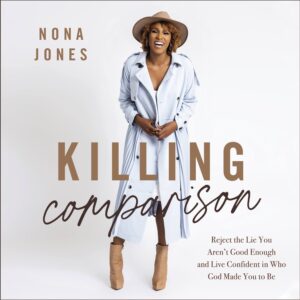 Taken from KILLING COMPARISON by Nona Jones. Copyright © September 27, 2022 by Nona Jones. Used by permission of Zondervan. www.zondervan.com.
Taken from KILLING COMPARISON by Nona Jones. Copyright © September 27, 2022 by Nona Jones. Used by permission of Zondervan. www.zondervan.com.
Nona Jones is a rare combination of preacher, business executive, author, and entrepreneur. In her day job she serves as the Director of North America Community Partnerships andGlobalFaithPartnerships atMeta, the company formerly known as Facebook. She is the best selling author of two books; Success from the Inside Out, chronicling her unlikely story of success after a childhood filled with physical and sexual abuse, andFrom Social Media to Social Ministry, the globally acclaimed guide to digital discipleship for churches.
She and her husband,Pastor Tim, lead Open Door Church in Gainesville, FL and are the proud parents of two boys, Timothy, Jr. and Isaac, and one girl, Golden doodle Shiloh.

 Today’s practice: Pick one or more tiny habits to place in your life when facing grief or trauma.
Today’s practice: Pick one or more tiny habits to place in your life when facing grief or trauma.






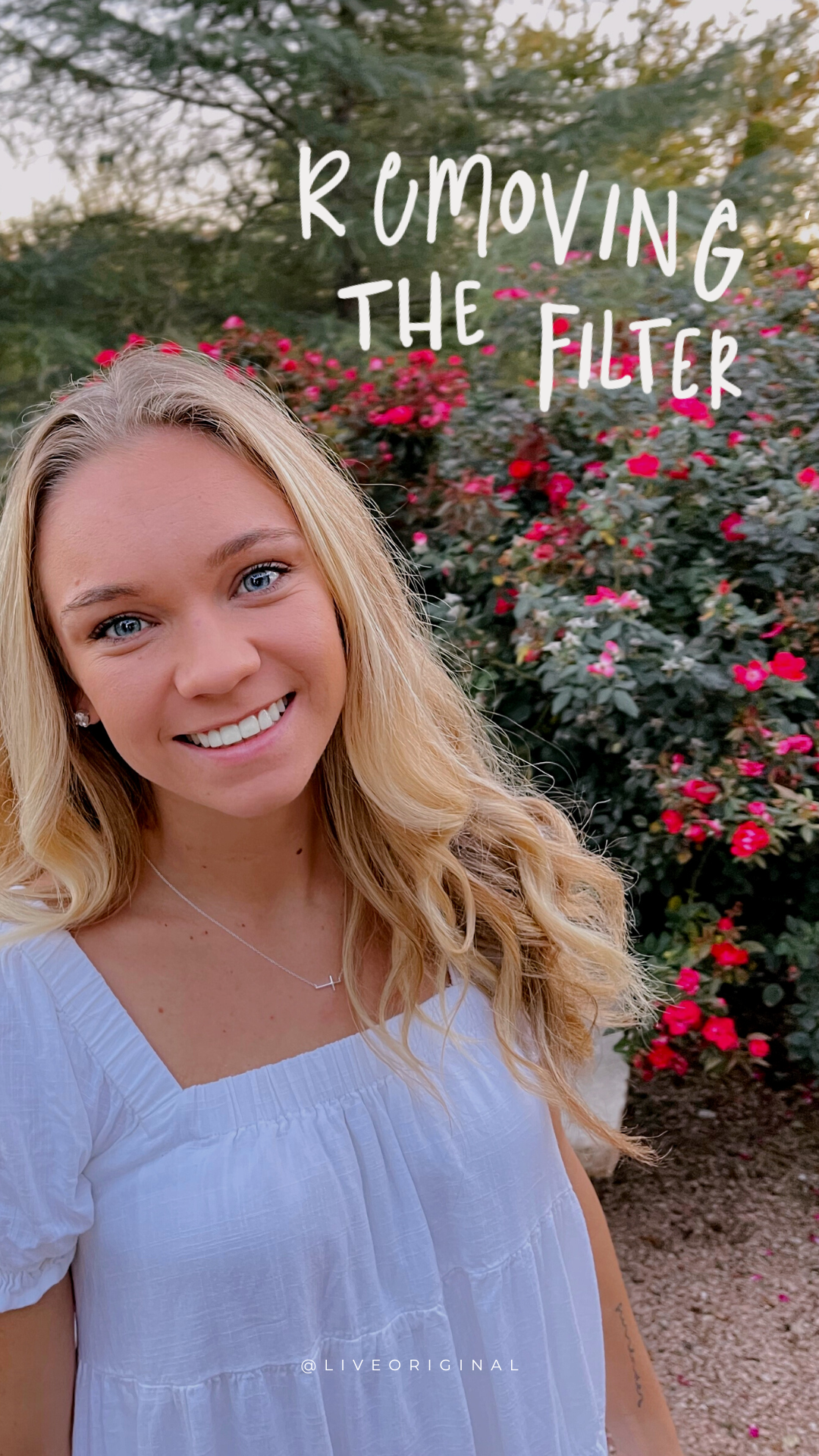


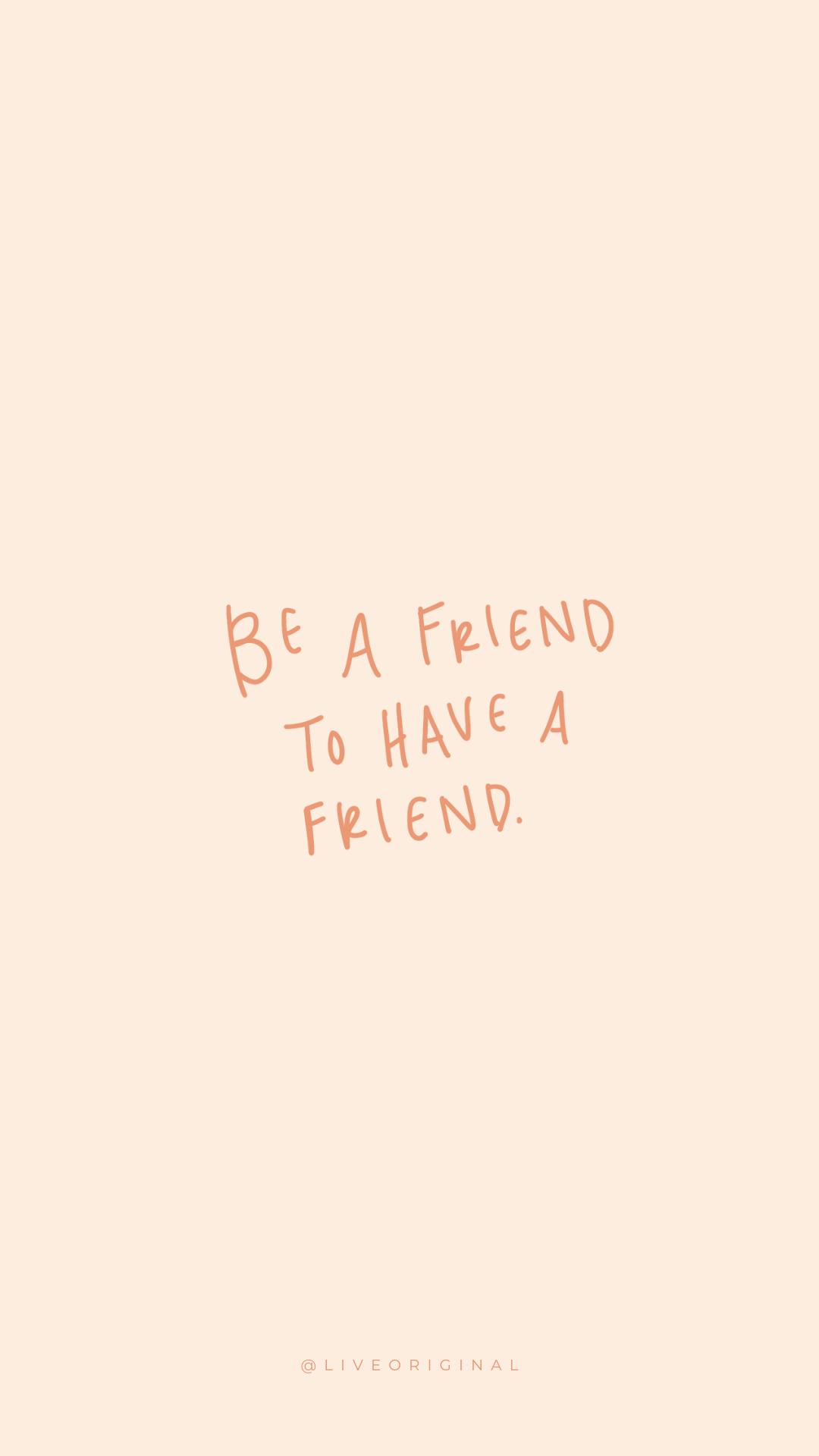
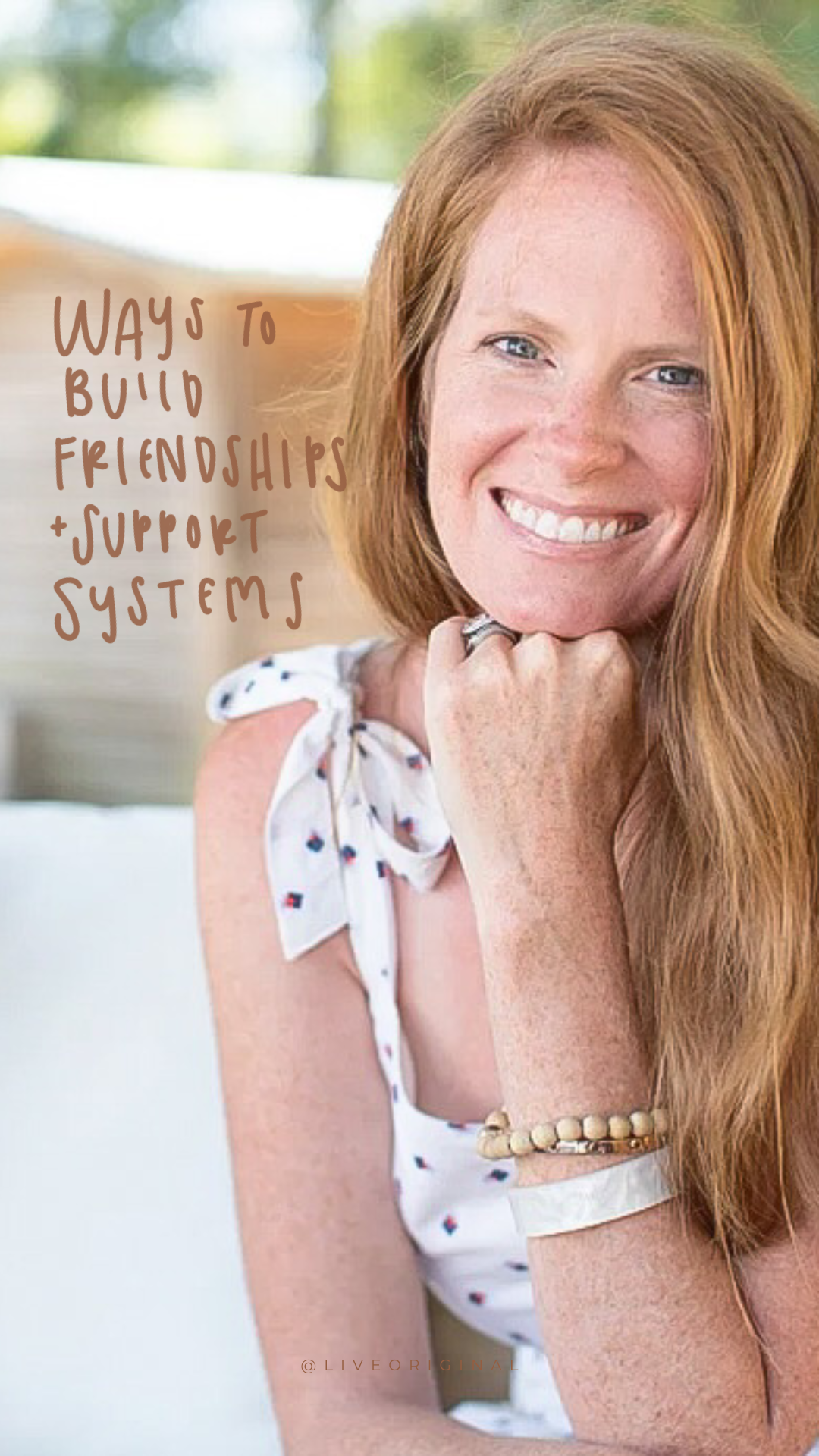
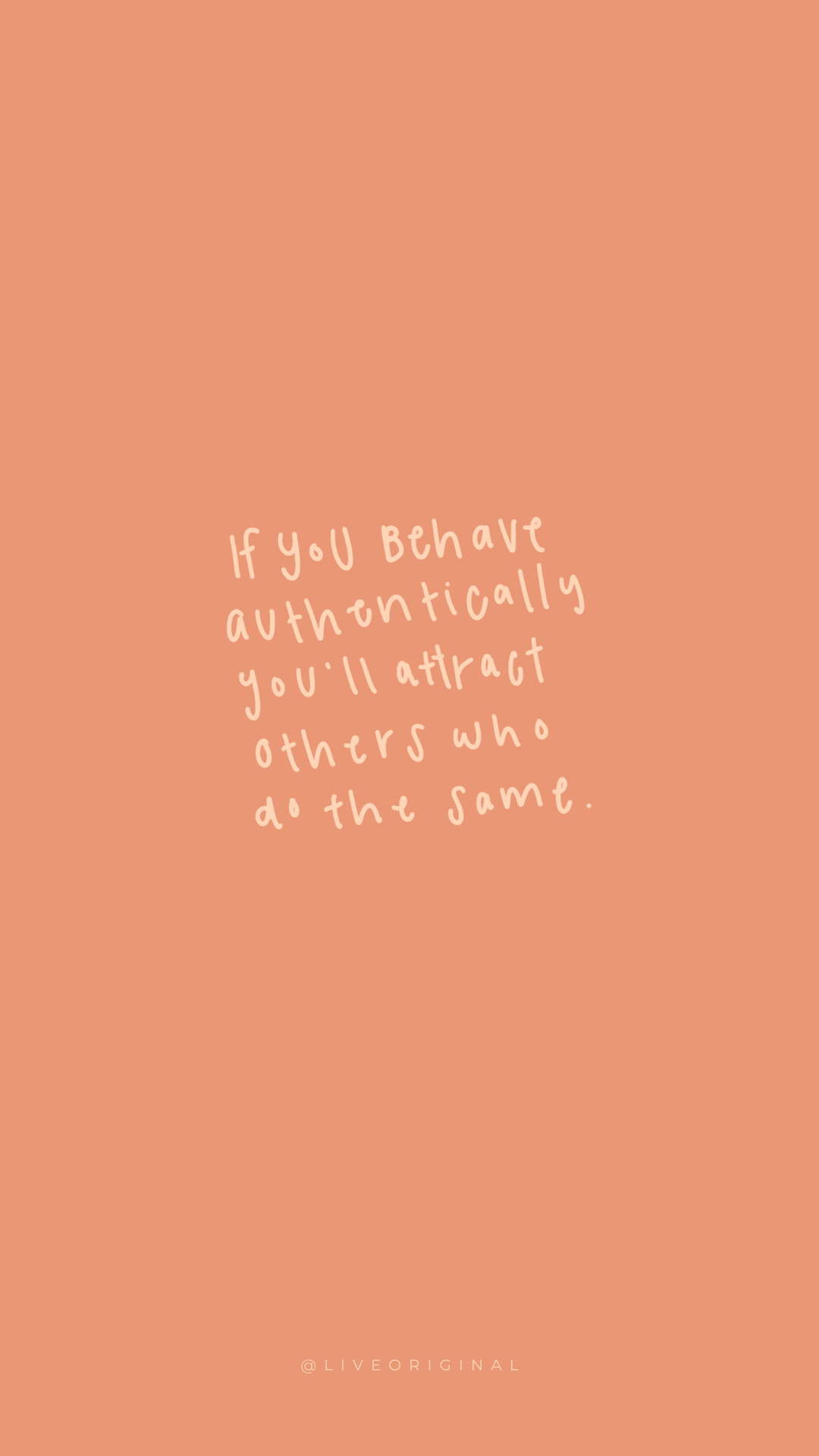






 Taken from
Taken from 











